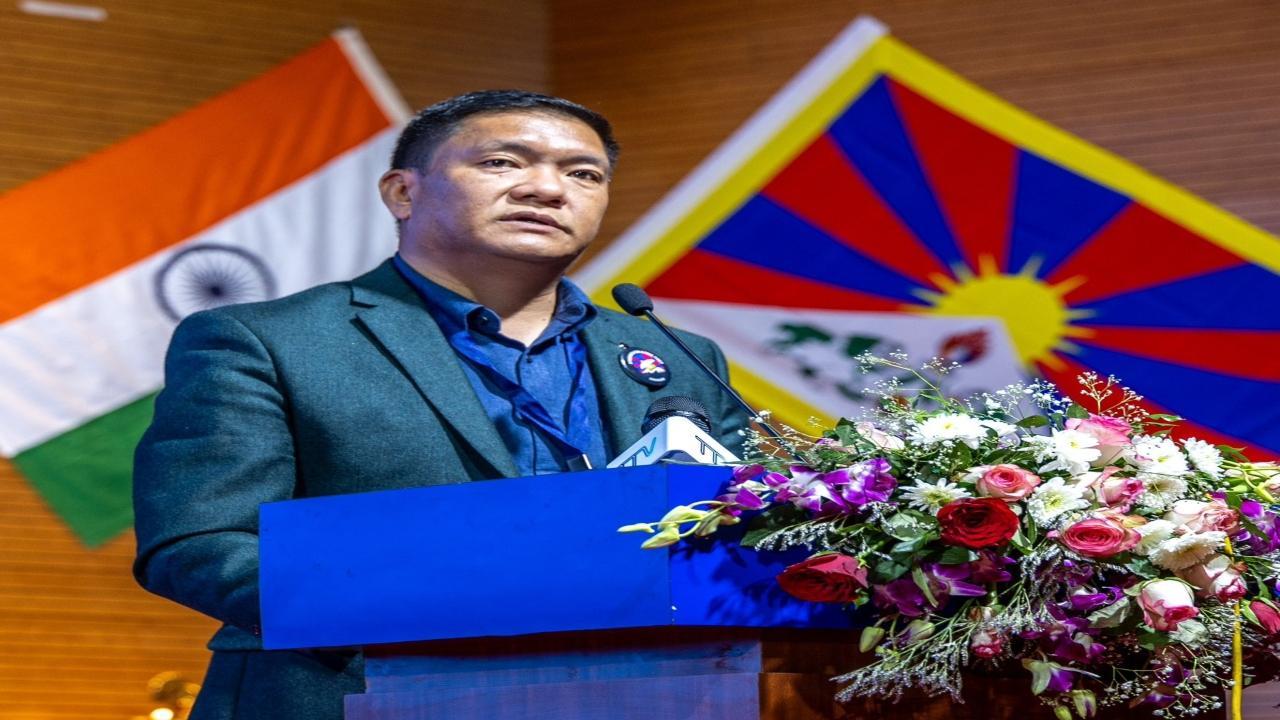Speaking at the inaugural function of a seminar titled 'Environment and Security' in the state capital, Pema Khandu pointed out that the new dam would allow China to control the timing and volume of water flowing downstream, which could have devastating effects during periods of low flow or drought

Pic/X
Arunachal Pradesh Chief Minister (CM) Pema Khandu on Friday expressed concern that China's plan to construct the world's largest hydropower project on the Yarlung Tsangpo river will have a devastating effect on India's water security, news agency PTI reported.
ADVERTISEMENT
The Yarlung Tsangpo river enters Arunachal Pradesh as Siang and becomes the Brahmaputra in Assam before flowing into Bangladesh.
According to PTI, while speaking at the inaugural function of a seminar titled 'Environment and Security' in Itanagar, Khandu pointed out that the dam would allow China to control the timing and volume of water flowing downstream, which could have devastating effects during periods of low flow or drought.
"The mighty Brahmaputra river would dry up during winters disrupting life in the Siang belt and the plains of Assam," he cautioned.
The CM said that sudden releases of water from the dam could also cause severe floods downstream, particularly during monsoon seasons, displacing communities, destroying crops, and damaging infrastructure, PTI reported.
He added that the dam would alter the sediment flow, affecting agricultural plots that rely on the river's natural replenishment of nutrients.
"China's construction of the world's largest hydropower dam on the Yarlung Tsangpo River poses significant risks to the water security, ecology, and livelihoods of millions of people downstream in Arunachal Pradesh, Assam, and Bangladesh. The potential disruption of water flows, flooding, and ecosystem degradation could have far-reaching consequences on us," he stated.
Highlighting that all major rivers of India originate from the Tibetan Plateau, Khandu claimed that the Chinese government's exploitation of Tibet's natural resources pose a serious threat to the existence of these river systems, upon which millions of Indians depend for survival.
"Tibet is often referred to as the 'Water Tower of Asia', supplying water to over a billion people in the region. Its environmental health is critical not only to China and India but also to much of Asia. Therefore, India, given its direct dependency on Tibet's rivers and climate patterns, has a significant role to play in global environmental conservation efforts," Khandu said.
He also appreciated the Tibet Support Group of Arunachal Pradesh and the Core Group for Tibetan Cause for organising the seminar in the state, PTI reported. The CM hoped that the discussions that would unfold in it would play a vital role in finding solutions to mitigate the alarming environmental situation in Tibet, which poses significant risks to the entire region.
Earlier this month, China reiterated its plan to build the world's biggest dam in Tibet near the Indian border, stating that the planned project has gone through rigorous scientific verification and will not have any negative impact on downstream countries, India and Bangladesh.
The project, estimated to cost around USD 137 billion, is located in the ecologically fragile Himalayan region along a tectonic plate boundary, where earthquakes occur frequently.
In his address, Khandu also elaborated on the relationship of India with Tibet, especially in the context of Buddhism, which dates back to the 8th century when the Nalanda school was at its peak.
"Buddhism, for centuries, has been the connecting bond between India and Tibet, transcending to our state. Nalanda became the epicenter for the study of Buddhist philosophy, logic, ethics, and meditation, and its influence spread far and wide, including to Tibet, where it played a key role in shaping Tibetan Buddhism," he said.
(With PTI inputs)
 Subscribe today by clicking the link and stay updated with the latest news!" Click here!
Subscribe today by clicking the link and stay updated with the latest news!" Click here!







